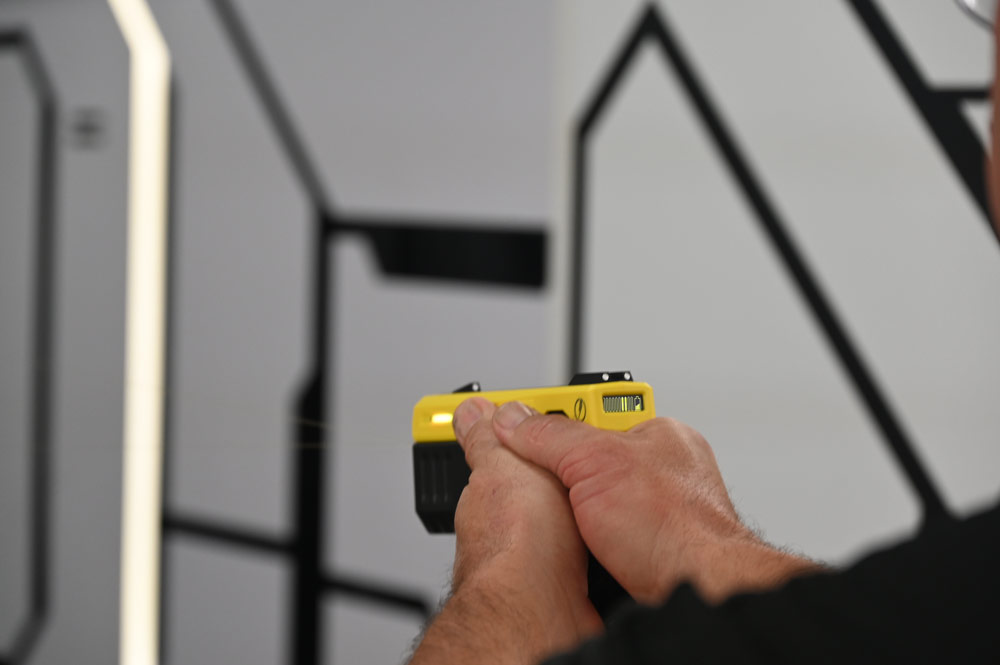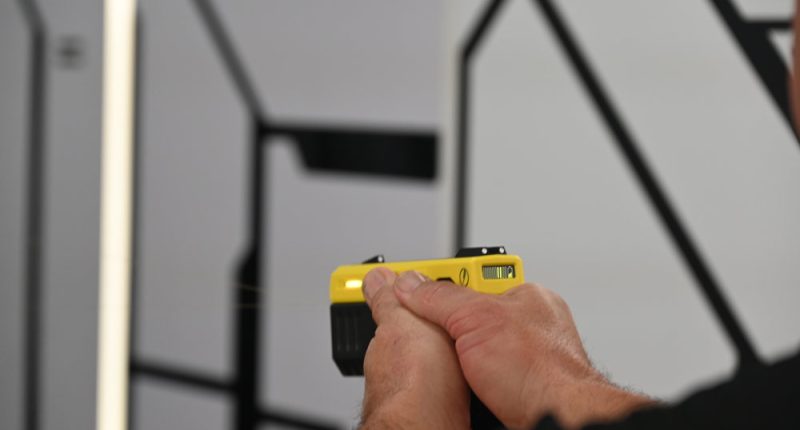
A bill that would withdraw citizens’ ability to lodge anonymous complaints against law enforcement officers sparked sharp disagreement between department leaders and rank-and-file officers before a House committee Thursday in Tallahassee.
The bill (HB 317), sponsored by Miami-Dade Republican Tom Fabricio, is supported by groups representing law enforcement officers, such as the Fraternal Order of Police. But two of the most powerful lobbyist organizations in Tallahassee — the Florida Sheriffs Association and the Florida Police Chiefs Association — are firmly opposed.
Fabricio told members of the House Government Operations Subcommittee that his bill would not totally prohibit anonymous complaints. “What the bill says specifically is [that] before an interrogation of a police officer, the signed, sworn complaint must be given to them,” he said, emphasizing the distinction.
The House bill analysis, however, says that requiring any complaint against a law enforcement or corrections officer “be made in writing and signed under oath” in effect would be “prohibiting a person from making an anonymous complaint.”
That certainly is how the Florida Police Chiefs Association interprets the legislation. Both Tallahassee Police Chief Lawrence Revell, speaking for the chiefs, and Jennifer “Cookie” Pritt, executive director of their association, testified about why they oppose the legislation.
“It severely damages all of the progress that our profession has made with regard to transparency and accountability,” Revell said, adding that requiring a complainant to swear under oath “will effectively eliminate the vast majority of complaints and our communities’ confidence in us as the police to police ourselves.”
Pritt offered a dramatic presentation to the committee, speaking for nearly 10 minutes about how as a young police officer she was touched inappropriately and groped in a sexual way by a high-ranking command officer. She immediately reported the incident to her supervisor, who told her she shouldn’t discuss it with other officers.
That supervisor never reported the incident up the chain of command. Ultimately, the commanding officer received “some sort of remedial training on sexual harassment. He didn’t lose his job. He didn’t get demoted.”
 Pritt said the point of her narrative was that she learned years later that she was not the only woman who had reported inappropriate behavior by this commander. “If you pass this bill, if anyone of these women had come forward and wished to remain anonymous, the agency I worked for then would not have been able to investigate these allegations,” she said.
Pritt said the point of her narrative was that she learned years later that she was not the only woman who had reported inappropriate behavior by this commander. “If you pass this bill, if anyone of these women had come forward and wished to remain anonymous, the agency I worked for then would not have been able to investigate these allegations,” she said.
“Backing the blue is about supporting the law enforcement profession, by not undermining the process by which we can hold accountable those who would tarnish the badge,” she added.
Buzz in the room
At one point during her testimony, law enforcement officials in the committee room who supported the legislation huddled among themselves, seemingly realizing how compelling Pritt’s testimony was. But it didn’t stop them from saying that the committee should vote for the proposal.
“I’m in support of the bill as written,” said James Baiardi, president of the Corrections Chapter of the Florida Police Benevolent Association.
“There’s a game out there. When correction officers are doing a good job you make a bunch of complaints against them. You get pulled off of the institution. He’s embarrassed in front of his peers that something’s wrong. If you want to make a complaint against somebody, and if you’re not lying to me, you don’t have a problem putting your name on it.”
“A lot like frivolous lawsuits there are also frivolous complaints in the criminal justice process,” added Lisa Henning, legislative liaison with the Florida State Fraternal Order of Police.
Every lawmaker on the committee who commented praised Pritt, who said it was only the second time she had publicly discussed the incident. Some said her testimony changed their minds.
“My heart broke,” said Hillsborough Republican Rep. Susan Valdés.
“I see the intention of what you’re trying to do,” Valdés told Rep. Fabricio. “And I don’t know if I can support it after hearing the testimony that we heard today.”
“I came in here as a yes vote,” added Broward County Democrat Darryl Campbell. “But after hearing those stories and realizing what is happening through their lens, I can’t vote up on this bill.”
‘Wrestling’ with scheduling the bill
Others were less sympathetic.
“If there’s some management issues in different precincts, that gets addressed,” said Miami Beach Republican Fabián Basabe.
“But we have to appreciate the fact that — and I also am curious why they’re not here? Maybe just because it’s not impactful enough to just grandstand their experiences, or maybe they just don’t want to go through it again or just revisit it. There are countless numbers of false claims that have ruined lives in law enforcement.”
The bill was approved 11-6, with Valdés and Pinellas County’s Linda Chaney the only Republicans to oppose the measure. Osceola County Democrat Jose Alvarez was the only Democrat to support the bill.
“I’ve been wrestling with putting this on the agenda for a very long time,” said Chaney, who chairs the committee that heard the bill.
Following the vote, Fabricio told the Phoenix that despite the criticism by members of the Police Chiefs Association, the bill still allows people to make anonymous complaints.
The measure has one more stop, in the Judiciary Committee, before hitting the floor of the House. Its Senate companion (SB 516), sponsored by Hillsborough County Republican Jay Collins, has yet to be heard in any committee.









